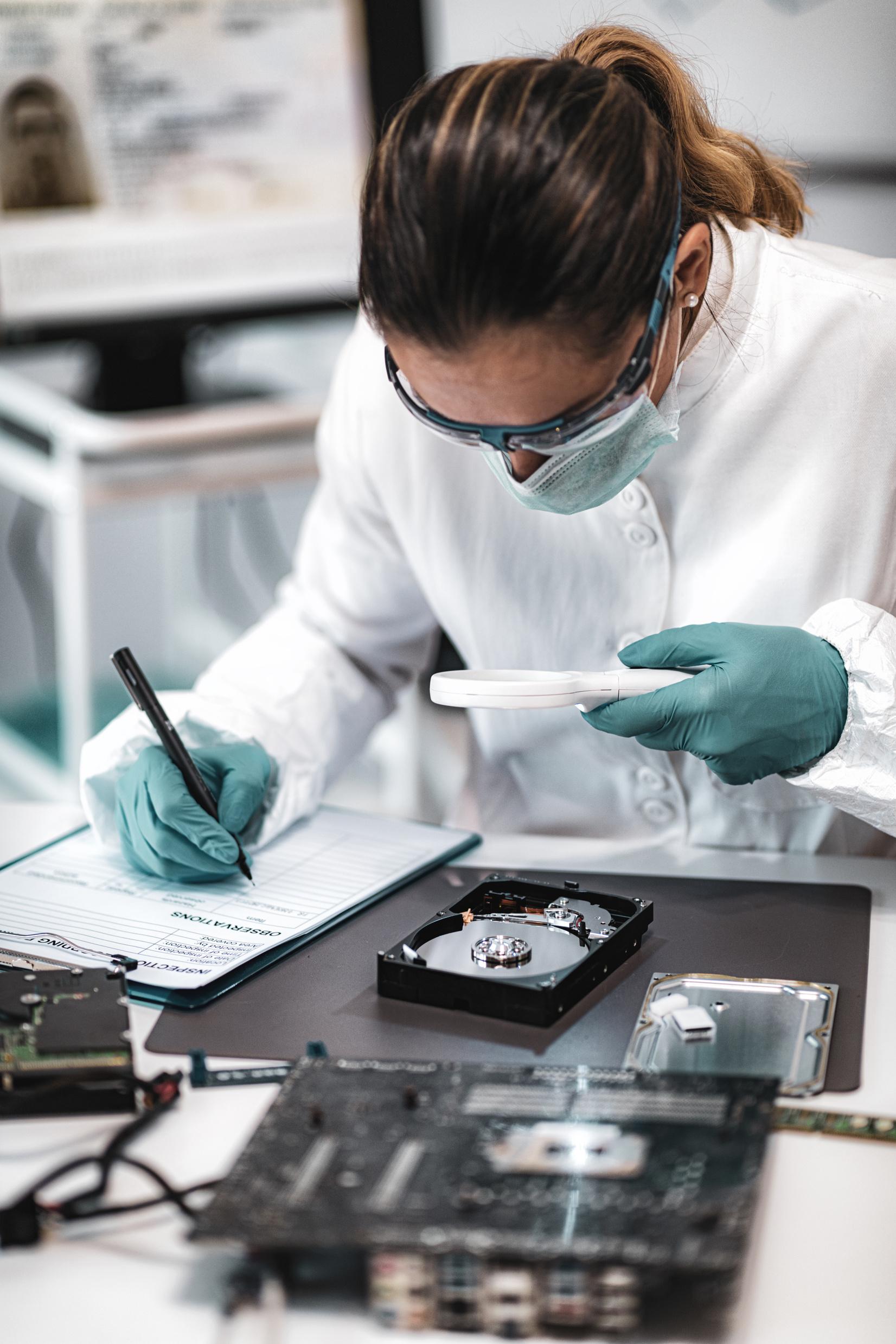

IMPACTOF TECHNOLOGYON FORENSICTEAM INVESTIGATIONS
Technology has significantly influenced and transformed the field of forensic investigations, revolutionizing the way evidence is collected, analyzed, and presented in legal settings. From the adoption of advanced digital tools to ethical dilemmas arising from their use, the impact of technology has been vast and multifaceted.

RoleofTechnologyinForensicTeamin Investigations
EfficientData Analysis
Technology equips forensic teams with sophisticated tools for efficient data analysis, enabling them to process and examine digital evidence rapidly and accurately.
EnhancedEvidence Preservation

Digital technology plays a vital role in preserving evidence in its original form, ensuring that it remains authentic and unaltered throughout the investigative process.
ComplexData Recovery
Advanced technology enables the extraction and recovery of digital evidence from various devices and platforms, uncovering crucial information that was previously inaccessible.

AdvancementsinDigitalForensics
CloudComputing Analysis
The evolution of digital forensics incorporates cloud computing analysis, allowing investigators to retrieve evidence stored in cloud environments with precision.
2 InternetofThings (IoT)
The proliferation of IoT devices presents new challenges and opportunities for digital forensic investigations, demanding innovative approaches in evidence collection and analysis.
3 Cybersecurity Integration
Advancements in digital forensics involve the integration of cybersecurity measures to protect digital evidence from unauthorized access or tampering.
UseofArtificialIntelligencein Investigations
AutomatedAnalysis
Artificial intelligence technologies automate the examination of large volumes of digital information, accelerating the investigative process and uncovering patterns that may be crucial to a case.
BehavioralAnalysis
AI applications aid in behavioral analysis, enabling investigators to discern patterns and anomalies within digital evidence that may be indicative of criminal activity.
RiskAssessment
AI tools assist in risk assessment by evaluating the potential impact of digital evidence on an investigation, guiding forensic teams in prioritizing their analysis.


ChallengesFacedbyForensicTeams andPrivateInvestigators
ComplexDigitalEcosystems
1 2 3
Forensic teams encounter challenges in navigating complex digital ecosystems, such as cloud platforms and encrypted data, which demand specialized expertise and tools.
DataPrivacyConcerns
Addressing data privacy concerns while collecting and analyzing digital evidence requires a delicate balance between investigative imperatives and ethical considerations.
RapidTechnologicalEvolution
The rapid evolution of technology necessitates continual training and adaptation by forensic professionals to keep pace with the latest digital forensic tools and methodologies.
EthicalConsiderationsintheUseof Technology

DataPrivacy
The ethical use of technology in forensic investigations encompasses respecting the privacy and rights of individuals whose data is being analyzed.
Confidentiality
Ensuring the confidentiality of digital evidence and maintaining its integrity throughout the investigative process is a fundamental ethical requirement.
DataIntegrity
Preserving the integrity of data is a critical ethical consideration, preventing the manipulation or corruption of digital evidence.

FUTURETRENDSINTECHNOLOGYFOR FORENSICINVESTIGATIONS
BlockchainIntegration
The future of forensic investigations is likely to see the integration of blockchain technology, ensuring secure and tamper-proof storage of digital evidence.
2 EnhancedAutomation
Advancements in automation and AI are set to further streamline digital forensic processes, enhancing efficiency and accuracy in evidence analysis.
3 QuantumComputingImpact
The potential impact of quantum computing on digital forensics poses both opportunities and challenges, demanding innovative approaches to evidence analysis and encryption.
1
